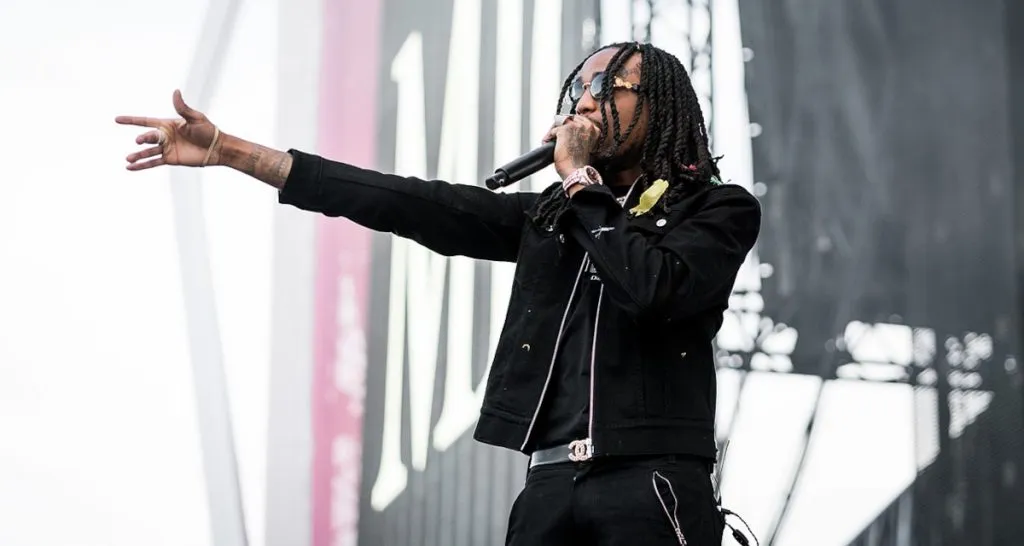
A live performance from Quavo, who, along with Hybe America and Quality Control, is facing a copyright infringement lawsuit from sculptor Daniel Arsham. Photo Credit: Jørund Føreland Pedersen
Hybe America, its Quality Control subsidiary, and Quavo are facing a copyright lawsuit for allegedly infringing on a visual artist’s work in social media posts.
Daniel Arsham, touted as “one of the most well-known contemporary artists in the world,” submitted the unique action to a New York federal court. As laid out in the suit, the plaintiff sells his projects “for many hundreds of thousands of dollars” apiece and “has a robust licensing market.”
On the latter front, New York City-based Arsham is said to have collaborated with “a litany of hip-hop artists, including Pharrell, Usher, Jay-Z, Gunna, The Weeknd, Nas, and others.”
While it probably doesn’t need saying in light of the complaint, Quavo isn’t featured in that litany of talent.
At least as told by Arsham, he’s the creator of a sculpture called Quartz Eroded 1961 Ferrari GT. That 2018 effort is “part of a collection of full-size vehicle sculptures that he has created in his signature ‘eroded’ fictional archeological technique,” per the legal text.
Also in 2018 (and then again in 2023), the plaintiff allegedly displayed the creation, photos of which are included in the suit, to the public in an exhibition.
Fast forward to December 2024, when Quavo allegedly took to Instagram and TikTok to upload a teaser for “Trappa Rappa” (2025).
This clip, besides several subsequently uploaded stills thereof, allegedly shows “Quavo performing in front of the” aforesaid sculpture.
(The track itself debuted in February 2025; “music video” is used once in the complaint to describe the social posts, but the actual music video doesn’t seem to include the statue.)
Though Quavo and his team tagged Arsham in the original posts, they didn’t obtain the artist’s permission to use the sculpture, the lawsuit maintains.
The plaintiff “never consented” to the usage and hasn’t received related compensation, the legal text drives home for good measure.
And to reiterate the obvious once more, Arsham – who purportedly discovered Quavo’s alleged usages in December 2024 and sent multiple cease and desist letters soon thereafter – claims there haven’t been any “meaningful discussions” between his team and the defendants.
Furthermore, the alleged infringement has purportedly “significantly damaged the value of the” sculpture, the artist’s other works, and “the value of any licenses for his artworks in the relevant markets.”
All told, Arsham is seeking relief for vicarious and contributory infringement, with an additional publicity-rights claim under New York law to boot.





Recommended Comments
Join the conversation
You can post now and register later. If you have an account, sign in now to post with your account.